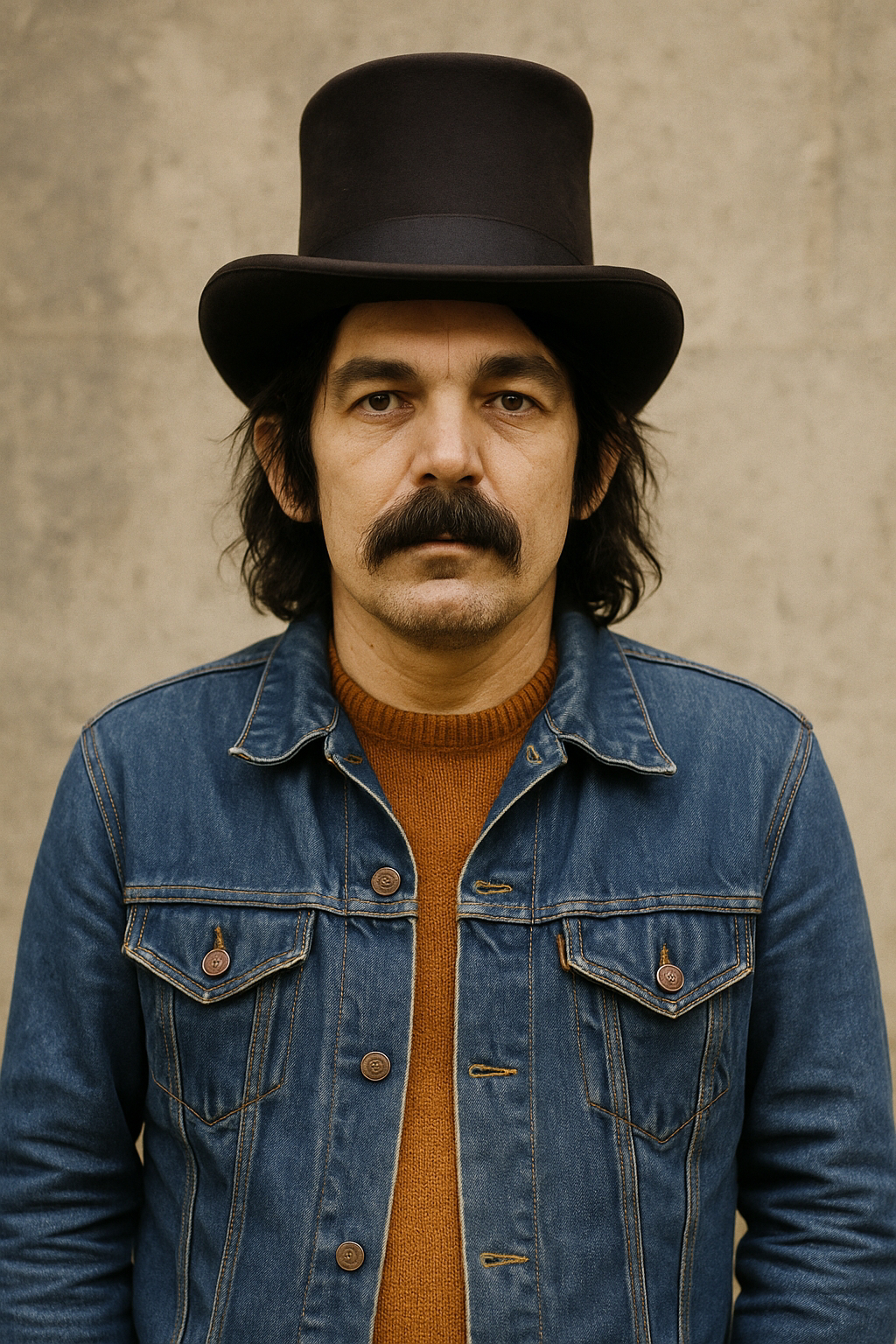There was a time when to “sell out” was to sin. A time when purity was measured not by emotional honesty or sonic vision, but by how many people didn’t understand what you were doing. That time is gone, and good riddance. Because if you still sneer at Unconditionally Guaranteed or Bluejeans & Moonbeams—Captain Beefheart’s so-called “sellout” records—you’re not just missing the point. You’re missing the entire function of time in art.
Let’s rewind.
Beefheart, born Don Van Vliet, was the Mojave mystic, the sandblasted surrealist, the man who howled like Howlin’ Wolf hallucinating in a hardware store. With Trout Mask Replica (1969), he and the Magic Band did something that didn’t just challenge rock conventions—it annihilated them and set up a commune on the smoking ruins. But by 1974, the Magic Band was fed up. Touring was hell, money was thinner than the Mojave wind, and Don, ever the cracked auteur, was sliding into paranoia. So they did something radical: they made music people could actually hum.
And for this, they were crucified.
Unconditionally Guaranteed and Bluejeans & Moonbeams were labeled “betrayals,” “sellouts,” “easy listening for the avant-garde set.” But now, 50 years on, they sound like something else entirely: visionary surrender. Not surrender as in defeat, but as in release. A letting go of dogma, a reach toward new texture, toward soul, toward R&B shimmer, even towards the spectral sleaze of AM radio.
Let’s look at Unconditionally Guaranteed: the fuzz is still there, Don’s voice still half-growl, half-incantation. But now it’s soaked in honey instead of vinegar. “Magic Be” glides, “Upon the My-O-My” grooves, and “This Is the Day” sounds like a funeral dirge for his former self. Then Bluejeans & Moonbeams arrives, swimming in strings, pedal steel, and a ghostly California duskiness. The title track is haunted lounge music for cowboys who read Rimbaud. “Captain’s Holiday” is mutant yacht rock. This is not failure. It’s metamorphosis.
And here’s the heretical truth: Beefheart was just doing what all true artists do—reacting to the moment.
This was the mid-70s. Marvin Gaye was making I Want You. Brian Eno was floating in ambient waters. The airwaves were starting to shimmer with heat mirages of soul, soft psych, and cosmic country. Why shouldn’t Don, who grew up idolizing R&B crooners and gutbucket bluesmen, embrace that too? Why shouldn’t he express?
We live now in a post-irony, post-genre, post-fence-sitting era. The lines between commercial and underground, pop and avant-garde, are vapor trails. What was once derided as compromise now reads as clarity. Artists like Ariel Pink, Unknown Mortal Orchestra, and Cate Le Bon mine the exact DNA of these “sellout” records and are hailed as saviors of taste.
So let’s rewrite the record: Bluejeans & Moonbeams is not a footnote. It’s a forecast.
And to those still clinging to the idea that real art has to hurt, that melody is manipulation, that sincerity is somehow suspect—go back to the desert. Beefheart’s waiting there, shades on, crooning something soft, something weird, and something true.
If that ain’t cool, baby, then there’s no hope for you at all.

No comments:
Post a Comment